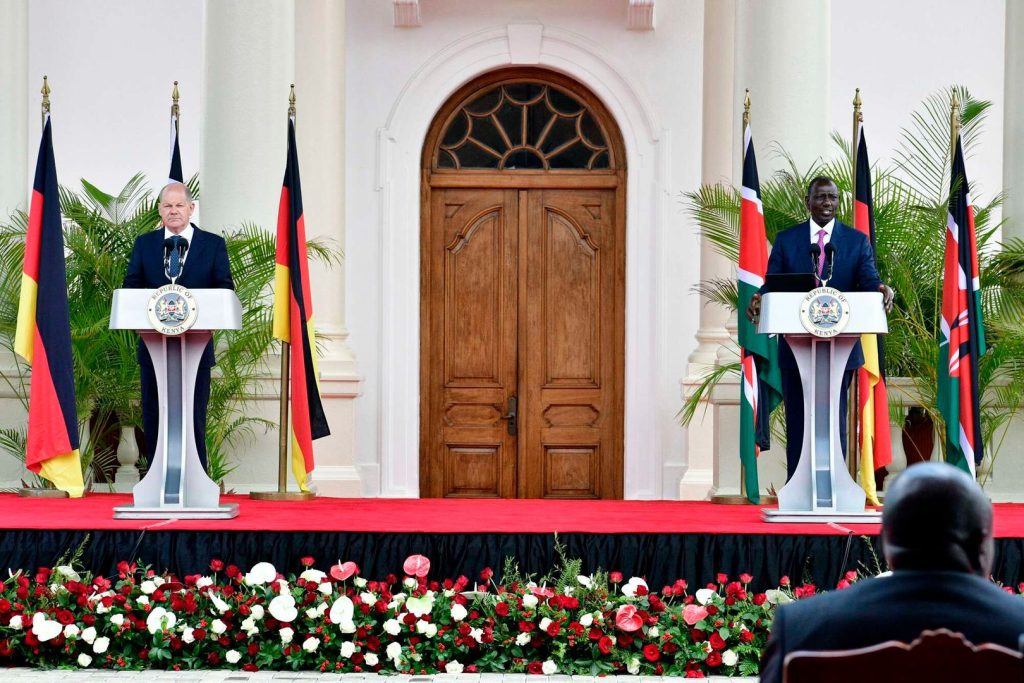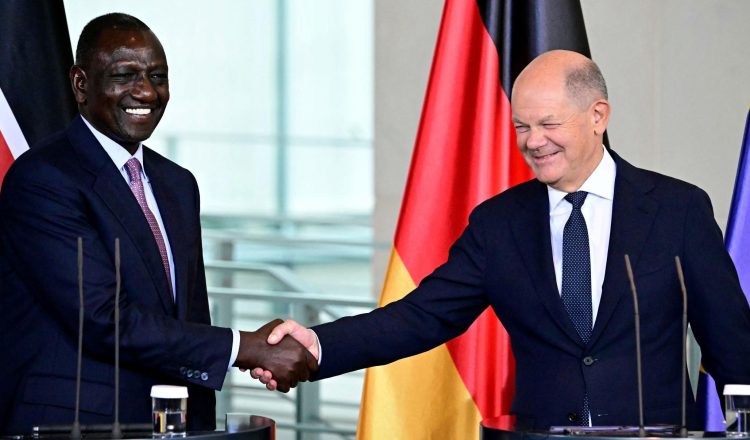Germany and Kenya have signed a pivotal agreement that will see 250,000 skilled and semi-skilled Kenyan workers migrate to Germany to help fill the European nation’s growing skilled labour shortage. The deal, signed by German Chancellor Olaf Scholz and Kenyan President William Ruto, addresses both Germany’s pressing need for workers and Kenya’s struggle to provide sufficient employment for its burgeoning youth population.

As part of the initial phase, five Kenyan bus drivers have already arrived in the city of Flensburg, Germany, in a pilot project that aims to set the groundwork for the larger migration effort. These drivers are part of a broader strategy to incorporate Kenyan workers into Germany’s labour market, particularly in industries facing shortages such as IT, healthcare, and transportation.
The agreement is notable for its flexibility, allowing Kenyan workers with or without formal qualifications to apply for jobs in Germany. IT specialists can migrate without formal degrees, and workers with vocational or university training can have their credentials recognized, enabling them to fill gaps in Germany’s workforce. The initiative also offers temporary residence permits and long-term visas for study and vocational training, providing Kenyans a pathway to more permanent opportunities in Europe’s largest economy.
Meanwhile, the deal simplifies the process of repatriating Kenyan nationals residing illegally in Germany, ensuring a streamlined approach to addressing legal status issues. Both countries have emphasized their commitment to protecting the rights of Kenyan workers, ensuring safeguards against exploitation, human trafficking, and forced labour. The International Labour Organisation (ILO) has commended the agreement for promoting decent work opportunities for Kenyan workers abroad while addressing Germany’s domestic workforce challenges.
Despite the opportunities created by the deal, some Kenyans have voiced concerns about the potential for brain drain, particularly in the healthcare sector. Prominent Kenyan lawyer and politician Ekuru Aukot warned that the agreement could lead to the loss of crucial skilled professionals, such as doctors and nurses, who are already in demand within Kenya.
However, Roseline Njogu, a senior official in Kenya’s foreign affairs ministry, defended the arrangement, arguing that the country’s rapidly growing workforce needs external job opportunities and that creating sufficient local employment takes time and substantial resources.

Is Dangote Selling Fuel or Vodka?
The first wave of Kenyan workers will undergo training in Germany, with healthcare professionals and teachers expected to follow in the coming months. This labour agreement highlights a growing trend of strategic migration partnerships aimed at balancing the labour market needs of developed nations with the employment challenges faced by developing countries like Kenya.
- Tags: 000 Kenyan workers, 250, Germany-Kenya labour deal, Kenyan bus drivers Flensburg, Kenyan doctors and nurses migration, Kenyan IT specialists Germany, Kenyan workers in Germany, Kenyan youth employment, migration agreement Kenya Germany, skilled labour shortage Germany, vocational training Germany Kenya





